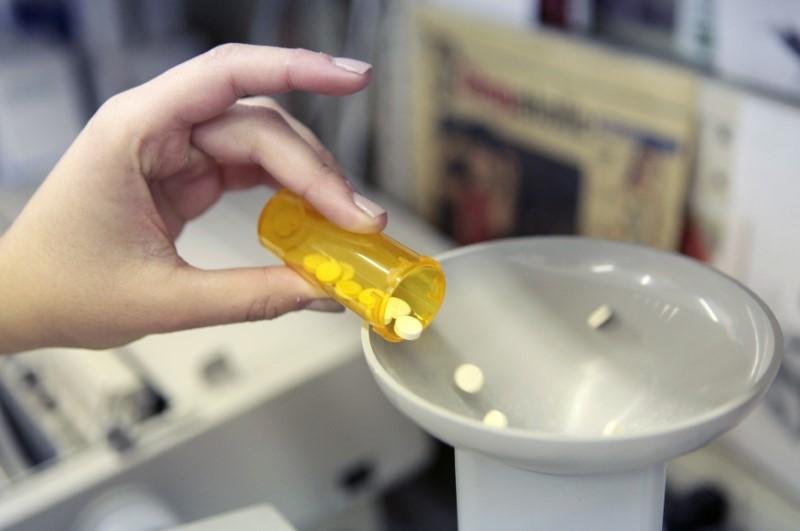Drugmakers’ response to the threat posed by “superbugs” remains patchy even after years of warnings, according to the first analysis of individual companies’ efforts to tackle the antibiotic resistance crisis.
The rise of drug-resistant bacteria is a growing threat to modern medicine with the emergence of infections resistant to even last-resort antibiotics – a situation made worse in recent years by overuse of antibiotics and cutbacks in drug research.
New analysis by the non-profit Access to Medicine Foundation (AMF), published on Tuesday, found that GlaxoSmithKline and Johnson & Johnson were doing more than most among large research-based pharmaceutical companies to tackle the problem, while Mylan led the way among generic drugmakers and Entasis was top among biotechs.
Overall, GSK led the field with 55 antimicrobial pipeline projects, including 13 vaccines.
Drugmakers’ response to the threat posed by “superbugs” remains patchy even after years of warnings, according to the first analysis of individual companies’ efforts to tackle the antibiotic resistance crisis.
The rise of drug-resistant bacteria is a growing threat to modern medicine with the emergence of infections resistant to even last-resort antibiotics – a situation made worse in recent years by overuse of antibiotics and cutbacks in drug research.
New analysis by the non-profit Access to Medicine Foundation (AMF), published on Tuesday, found that GlaxoSmithKline and Johnson & Johnson were doing more than most among large research-based pharmaceutical companies to tackle the problem, while Mylan led the way among generic drugmakers and Entasis was top among biotechs.
Overall, GSK led the field with 55 antimicrobial pipeline projects, including 13 vaccines.
Drugmakers’ response to the threat posed by “superbugs” remains patchy even after years of warnings, according to the first analysis of individual companies’ efforts to tackle the antibiotic resistance crisis.
The rise of drug-resistant bacteria is a growing threat to modern medicine with the emergence of infections resistant to even last-resort antibiotics – a situation made worse in recent years by overuse of antibiotics and cutbacks in drug research.
New analysis by the non-profit Access to Medicine Foundation (AMF), published on Tuesday, found that GlaxoSmithKline and Johnson & Johnson were doing more than most among large research-based pharmaceutical companies to tackle the problem, while Mylan led the way among generic drugmakers and Entasis was top among biotechs.
Overall, GSK led the field with 55 antimicrobial pipeline projects, including 13 vaccines.
Drugmakers’ response to the threat posed by “superbugs” remains patchy even after years of warnings, according to the first analysis of individual companies’ efforts to tackle the antibiotic resistance crisis.
The rise of drug-resistant bacteria is a growing threat to modern medicine with the emergence of infections resistant to even last-resort antibiotics – a situation made worse in recent years by overuse of antibiotics and cutbacks in drug research.
New analysis by the non-profit Access to Medicine Foundation (AMF), published on Tuesday, found that GlaxoSmithKline and Johnson & Johnson were doing more than most among large research-based pharmaceutical companies to tackle the problem, while Mylan led the way among generic drugmakers and Entasis was top among biotechs.
Overall, GSK led the field with 55 antimicrobial pipeline projects, including 13 vaccines.
Drugmakers’ response to the threat posed by “superbugs” remains patchy even after years of warnings, according to the first analysis of individual companies’ efforts to tackle the antibiotic resistance crisis.
The rise of drug-resistant bacteria is a growing threat to modern medicine with the emergence of infections resistant to even last-resort antibiotics – a situation made worse in recent years by overuse of antibiotics and cutbacks in drug research.
New analysis by the non-profit Access to Medicine Foundation (AMF), published on Tuesday, found that GlaxoSmithKline and Johnson & Johnson were doing more than most among large research-based pharmaceutical companies to tackle the problem, while Mylan led the way among generic drugmakers and Entasis was top among biotechs.
Overall, GSK led the field with 55 antimicrobial pipeline projects, including 13 vaccines.
Drugmakers’ response to the threat posed by “superbugs” remains patchy even after years of warnings, according to the first analysis of individual companies’ efforts to tackle the antibiotic resistance crisis.
The rise of drug-resistant bacteria is a growing threat to modern medicine with the emergence of infections resistant to even last-resort antibiotics – a situation made worse in recent years by overuse of antibiotics and cutbacks in drug research.
New analysis by the non-profit Access to Medicine Foundation (AMF), published on Tuesday, found that GlaxoSmithKline and Johnson & Johnson were doing more than most among large research-based pharmaceutical companies to tackle the problem, while Mylan led the way among generic drugmakers and Entasis was top among biotechs.
Overall, GSK led the field with 55 antimicrobial pipeline projects, including 13 vaccines.
Drugmakers’ response to the threat posed by “superbugs” remains patchy even after years of warnings, according to the first analysis of individual companies’ efforts to tackle the antibiotic resistance crisis.
The rise of drug-resistant bacteria is a growing threat to modern medicine with the emergence of infections resistant to even last-resort antibiotics – a situation made worse in recent years by overuse of antibiotics and cutbacks in drug research.
New analysis by the non-profit Access to Medicine Foundation (AMF), published on Tuesday, found that GlaxoSmithKline and Johnson & Johnson were doing more than most among large research-based pharmaceutical companies to tackle the problem, while Mylan led the way among generic drugmakers and Entasis was top among biotechs.
Overall, GSK led the field with 55 antimicrobial pipeline projects, including 13 vaccines.
Drugmakers’ response to the threat posed by “superbugs” remains patchy even after years of warnings, according to the first analysis of individual companies’ efforts to tackle the antibiotic resistance crisis.
The rise of drug-resistant bacteria is a growing threat to modern medicine with the emergence of infections resistant to even last-resort antibiotics – a situation made worse in recent years by overuse of antibiotics and cutbacks in drug research.
New analysis by the non-profit Access to Medicine Foundation (AMF), published on Tuesday, found that GlaxoSmithKline and Johnson & Johnson were doing more than most among large research-based pharmaceutical companies to tackle the problem, while Mylan led the way among generic drugmakers and Entasis was top among biotechs.
Overall, GSK led the field with 55 antimicrobial pipeline projects, including 13 vaccines.













